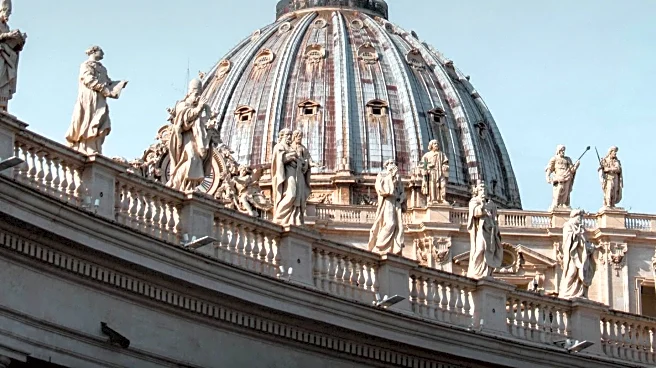What's Happening?
Pope Leo XIV has issued his first magisterial document, 'Dilexi Te,' which emphasizes the Church's obligation to see Christ in the poor. The document, an apostolic exhortation, draws heavily from the writings of previous popes and maintains continuity with traditional Church teachings. It addresses poverty, economic injustice, and immigration, advocating for the dignity of all individuals. The document avoids controversial stances, instead focusing on the universal destination of goods and the Church's role in supporting the marginalized. Pope Leo's approach reflects a commitment to continuity with his predecessors, rather than introducing new theological concepts.
Why It's Important?
The release of 'Dilexi Te' is significant as it sets the tone for Pope Leo XIV's papacy, emphasizing continuity with past teachings. The document's focus on poverty and immigration highlights the Church's ongoing commitment to social justice and humanitarian issues. It reinforces the Church's stance on treating all individuals with dignity, impacting global discussions on immigration and economic inequality. The document may influence Catholic social teaching and the Church's engagement with contemporary social issues, shaping its role in advocating for the marginalized.
Beyond the Headlines
The document's Christological focus underscores the theological basis for the Church's social teachings, emphasizing the spiritual dimensions of poverty and inclusion. Pope Leo's approach to immigration reflects a nuanced understanding of the complexities involved, avoiding simplistic solutions. The emphasis on monastic traditions highlights the historical role of the Church in supporting the poor, offering insights into the cultural and ethical dimensions of its teachings.











